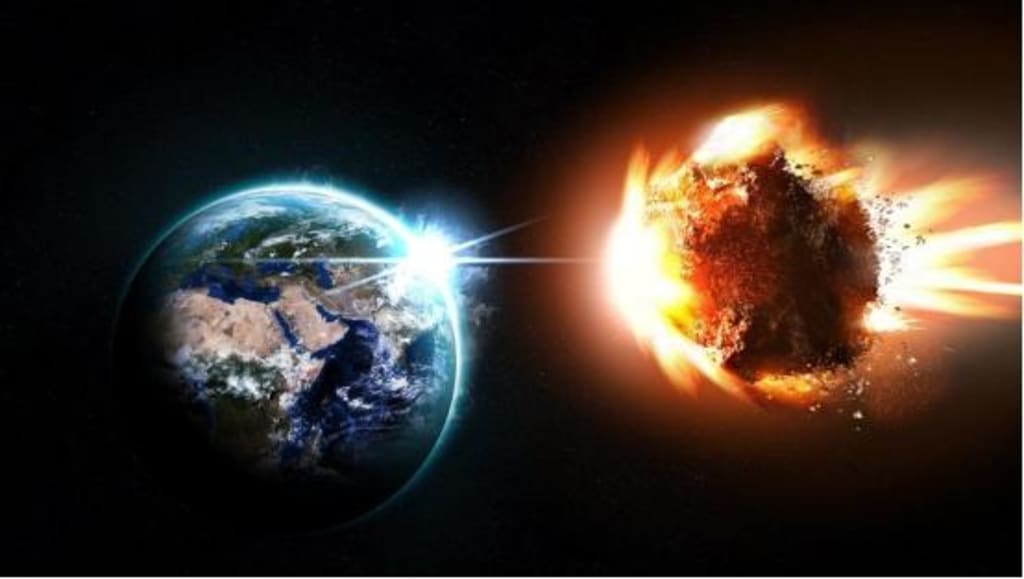Where do meteorites on Earth come from? Will there be mass extinctions in the future due to meteorite impacts?
Mass extinction will occur in the future due to meteorite impact

On Earth, a large number of meteorites break into the atmosphere every day, so where do these meteorites come from? As space rocks all the way to Earth, did they all come from the asteroid belt between Jupiter and Mars? Or from the Oort Cloud in the outer solar system?
In order to find out the answer to the question, scientists have been tracking a large number of meteorites over the past six years. These meteorites streak across the sky and eventually disappear in the outback desert of Australia. Where did they come from?
Where do all the meteorites on Earth come from?
About 4.5 billion years ago, when the young solar system was born, a large swath of dust and debris orbited the sun. Later, through further evolution of this debris, some became planets, while others remained the same , they became the most numerous and most special group of celestial bodies in the solar system: asteroids and comets.
Relatively speaking, comets are generally located in the outer periphery of the solar system. There is a view that liquid water and life on Earth are all sent by comets. Asteroids, which are located in the middle of the solar system, pose a greater threat to the earth. At the same time, because of their closer distances, human beings can learn the truth about the early evolution of the solar system by studying them.
The researchers said that at this stage, mankind's understanding of the history of the solar system comes from these meteorites. However, after some meteorites were discovered by scientists, they have been burned at high temperature and fell on the earth as fragments. Where did they come from? It is known that this also makes many researchers believe that these meteorites on Earth may not all come from the asteroid belt, but some of them come from the outer reaches of the solar system.
On Earth, if you want to find meteorites, you generally need to go to a no-man’s land. Of course, although a large number of meteorites break into the earth every day, most of them burn up in the atmosphere and have no chance to fall. on the surface.
The researchers said that it is still relatively rare for meteorites that can cause mass extinctions to hit the earth. In the evolutionary history of life on earth, there are not many cases. The closest one to us is the one that wiped out the dinosaurs 65 million years ago. a meteorite.
So, will there be mass extinctions due to meteorites in the future? If humans were still on Earth when it happened, what would humans do?
Will there be giant meteorites hitting the earth in the future?
In 2016, British scientists discovered through research that around 2036, there is a near-Earth asteroid called Asteroid 99942, which is likely to collide with the Earth.
If a catastrophe occurs, then, at the moment of the collision, thousands of square kilometers of the area around the impact point will be completely destroyed, because the power of the explosion is equivalent to 100,000 times the explosive power of the Hiroshima atomic bomb.
This also makes many people feel that the earth is about to usher in the end of the world. So, assuming that the asteroid 99942 really hit the earth as scheduled, will it cause mass extinction?
According to the data, scientists have divided the hazard level of asteroids hitting the earth into 10 levels, of which the impact level that will cause global destruction is level 10, while the hazard level of asteroid 99942 is level 4, which also means Even if it does collide with the earth in the future, it will not cause human extinction.
Moreover, it also needs to see whether it will fall in the densely populated areas of human life. If the answer is yes, then it will lead to a large number of casualties and economic losses.
Of course, through the current research on asteroid 99942, scientists have basically ruled out the possibility that it will destroy the earth in 2036, and from the probability of impact, the impact probability of small 99942 is about 4/1 million. , which also means that the probability is extremely low.
In terms of time, the general diameter is about the same size as the asteroid 99942. The probability of an asteroid over 100 meters hitting the earth is about 1 in 100 years, and the impact that may lead to the mass extinction of the earth's species may require several It only happens once every 10,000,000,000,000 years.
And this is only an estimate, not absolute. The researchers believe that human beings will actually be safe for a long time in the future. During this period, human beings have enough time to take precautions in advance to deal with possible future risks. Catastrophic crises that will occur, such as the premature elimination of a threatened near-Earth asteroid from space.
Speaking of which, no matter whether human beings leave the earth and go to other planets in the future, no matter where human beings are, they need to take precautions against meteorite impacts, because in the solar system, in addition to the earth, any planet such as Mars, the moon, etc. , have been hit, which also means that no place is absolutely safe. What we can do is to continuously improve technology to protect ourselves.
About the Creator
suzanne darlene
Take you to understand scientific knowledge






Comments
There are no comments for this story
Be the first to respond and start the conversation.